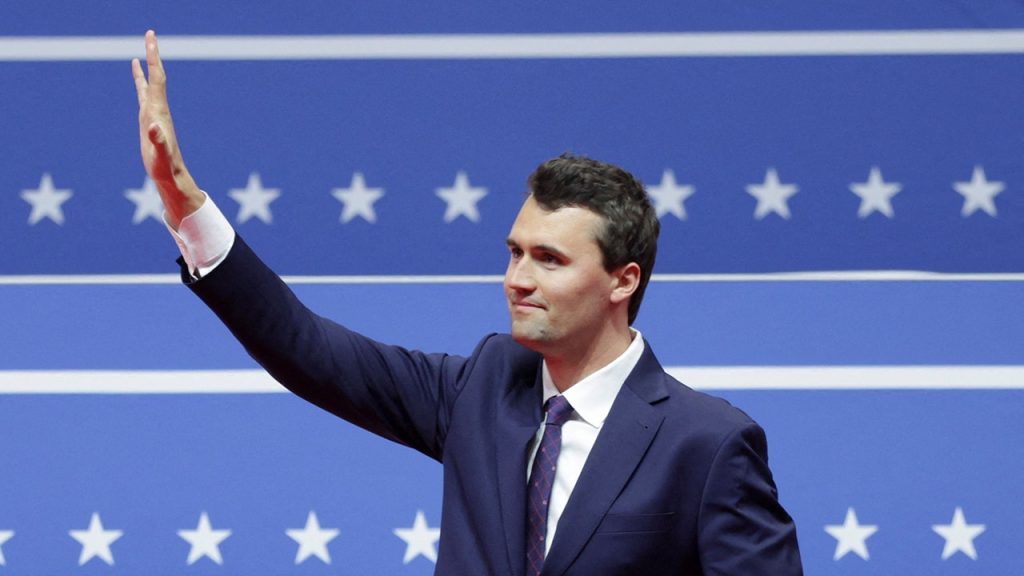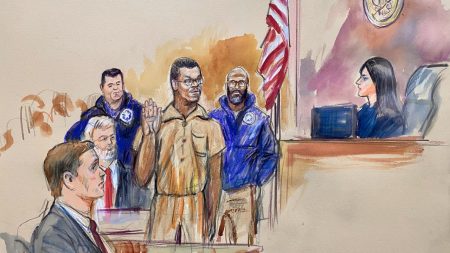Trump Honors Charlie Kirk’s Legacy in Poignant Address Following Assassination
In a heartfelt address to the nation, President Donald Trump mourned the shocking death of conservative activist Charlie Kirk, who was fatally shot during an appearance at Utah Valley University. Speaking with visible emotion, Trump commemorated the 31-year-old Turning Point USA founder as “a wonderful American” whose life embodied the values of faith, liberty, and patriotism. The president’s four-minute statement captured not only the personal loss felt by those close to Kirk but also reflected on what this tragedy represents for the American political landscape. Kirk was answering questions from students during his “American Comeback Tour” when a gunman fired from a rooftop, striking him in the neck and abruptly ending both the event and a young life dedicated to conservative activism.
“Charlie inspired millions, and tonight all who knew him and loved him are united in shock and horror,” Trump said, his voice carrying the weight of another violent political tragedy. The president highlighted Kirk’s extraordinary connection with young people, noting that “his mission was to bring young people into the political process, which he did better than anybody ever.” This tribute acknowledged Kirk’s remarkable achievement in engaging youth in political discourse – a feat recognized even by those who disagreed with his politics. Trump’s characterization of Kirk as “a martyr for truth and freedom” elevated the activist’s work beyond partisan lines, framing his death as a loss not just for conservatives but for American democratic discourse as a whole.
The president drew a somber parallel to the attempt on his own life in Butler, Pennsylvania, contextualizing Kirk’s assassination within what he sees as a troubling pattern of political violence in America. This personal connection added gravity to Trump’s message as he spoke not just as a president but as someone who has faced similar danger. “It’s long past time for all Americans and the media to confront the fact that violence and murder are the tragic consequence of demonizing those with whom you disagree day after day, year after year, in the most hateful and despicable way possible,” Trump stated firmly. In these words, the president called for national reflection on how political rhetoric might fuel violent actions, suggesting that dehumanizing language creates an environment where violence becomes more likely.
Trump’s address went beyond mourning to issue a clear condemnation of what he characterized as dangerous political demonization. He specifically criticized those on “the radical left” who he claimed have compared “wonderful Americans like Charlie to Nazis and the world’s worst mass murderers and criminals.” While this part of his message introduced a more divisive tone, it reflected Trump’s longstanding concern about how conservative voices are portrayed in mainstream discourse. The president’s description of Kirk’s killer as a “monster” and his promise that his administration would pursue accountability emphasized the gravity with which he viewed this act of violence, framing it not merely as a crime but as an attack on free expression itself.
Throughout his remarks, Trump portrayed Kirk as someone whose significance transcended his youth and whose impact would continue beyond his tragically shortened life. Kirk’s work in founding Turning Point USA and his efforts to promote conservative values on college campuses represented, in Trump’s framing, a commitment to ideals fundamental to American identity. The president’s characterization of Kirk as someone “who devoted his life to the cause of open debate” positioned the young activist as a champion of democratic principles rather than merely a partisan figure. This portrayal sought to elevate Kirk’s legacy beyond political lines, suggesting that his death represents a loss for American civic life regardless of political affiliation.
In his conclusion, Trump offered both consolation and determination, vowing that Kirk’s mission would endure despite this tragedy. “An assassin tried to silence him with a bullet, but he failed, because together, we will ensure that his voice, his message and his legacy will live on for countless generations to come,” the president declared with resolution. This promise reflected Trump’s belief that political violence, while devastating, cannot ultimately silence the exchange of ideas that Kirk championed. “Today, because of this heinous act, Charlie’s voice has become bigger and grander than ever before — and it’s not even close,” Trump concluded, suggesting that Kirk’s influence would paradoxically grow through the very attempt to silence him. In these final words, the president transformed a moment of national grief into an affirmation that the democratic values Kirk represented would continue to resonate through American political life.











